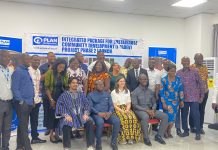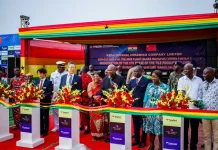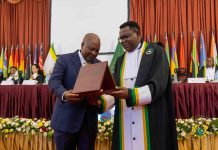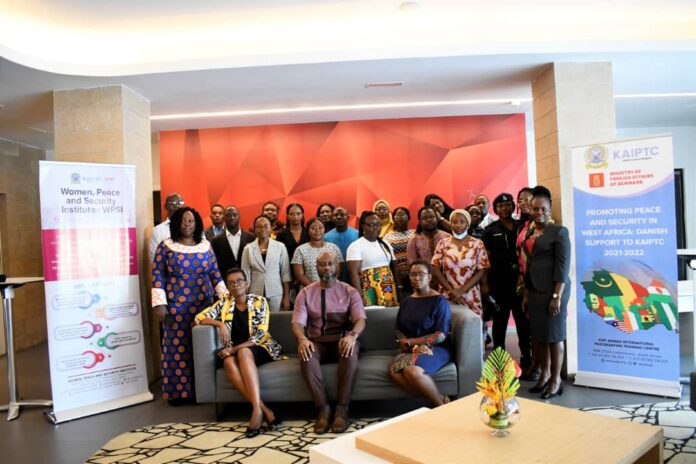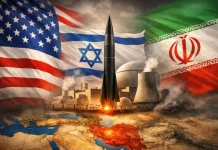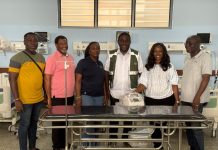The Women, Peace and Security Institute (WPSI) of the Kofi Annan International Peacekeeping Centre (KAIPTC) on Monday opened a five-day workshop, a Leadership and Mentoring Course for Women in Peace and Security in Abidjan, Cote D’Ivoire.
The workshop, which is taking place from 15-19 November 2021, is being supported and funded by the Ministry of Foreign Affairs of Denmark under the project: “Promoting Peace and Security in Africa: Danish Support to KAIPTC 2021-2022”.
The training is aimed at enhancing the leadership and mentoring capacity of operational level leaders working in the area of peace and security within the ECOWAS region.
This is aimed at further promoting the implementation of the Women Peace and Security Agenda in Africa.
The target participants have been drawn from operational-level female and male staff of partner organizations within the ECOWAS sub-region, preferably working on women, peace and security, as well as those working on issues within the peace, security, gender and political affairs domains.
Speaking at the gathering, Dr. Fiifi Edu-Afful who represented the Commandant of KAIPTC, and also the Senior Research Fellow & Deputy Programme Head, Peace Support Operations, KAIPTC, was optimistic about the training will without doubt offer participants a unique opportunity to enhance their skills in leadership and mentoring.

“The purpose of the scheme among others is to support the operationalization of the WPS Agenda through targeted training to increase capacity-building and networking opportunities for women,” he emphasised.
According to him, there has been a distress call to move beyond the rhetoric and tokenism of female participation in peace processes and to create opportunities that ensure the meaningful participation of women.
“It is our hope that through this training, participants will be able to enhance their skills, leverage their power, networks and alliances, and influence decision making in the peace and security environment. In addition to participants sharpening their leadership skills, also be able to have the appropriate tools to pass on these skills to the next generation,” Dr. Fiifi Edu-Afful indicated.
He also entreated participants to go back fully equipped after the workshop to provide effective mentoring for peace and security actors in the region and serve as catalysts for advancing the women, peace and security agenda.
He further threw more light on the critical role women play in conflict, peace and security on the continent.
“We have realised that over the years when it comes to the discussion around the role that women play in conflict, peace and security, women are mostly not on the table. So the idea was for us to bring women on the table; and in order to bring women on the table, we need to build their capacity so that they will be part of the peace process; they will be around the table when the decisions are being made because there is a gap in that regard and that necessitated the reason why we thought of a course like this to build the capacity of women to be around the table to be able to engage at the very highest level to be able to contribute to making decisions that will bring about peace and security into the West African Sub-region,” Dr. Fiifi Edu-Afful explained the rationale.
On her part, Mrs. Joana Osei-Tutu, Head of Women Peace & Security Institute (WPSI), KAIPTC, urged participants to explore the wealth of knowledge at their disposal during the sessions.
“I further encourage you to use this opportunity to network extensively and wish you all fruitful deliberations throughout the workshop,” she charged the participants.

About The Project
Whiles West African countries strive to counter these developments at the national and institutional level, several actors such as the Government of Denmark are committing financial and technical support to promote the peace, stability and development of the region and beyond, under the Danish development and humanitarian strategy “The World 2030”.
The strategy was adopted in 2017 and has four strategic objectives; security and development, migration and development, inclusive sustainable growth and freedom and development. A further key focus area is the role of the youth.
Under the security and development pillar, which among others, is focused on investing in peace, security and increased resilience in developing countries, the Kofi Annan International Peacekeeping Training Centre has embarked on a two-year project (2021 – 2022) with the Government on Denmark dubbed ‘Promoting peace and security in West Africa’ project. Through the project, Denmark is working with KAIPTC in three thematic areas; Women, peace and security, Conflict prevention and Responsibility to Protect. KAIPTC, over the years, is regionally and continentally reputed as a Centre of Excellence with expertise in training and research in the aforementioned areas to train security personnel and civilians to respond to the security challenges.
Broadly, the funding support in the area of Women, peace and security will support research into conflict-related sexual violence (CRSV) in localized communities in West Africa policy dialogues and capacity building for community actors in CRSV. The conflict prevention thematic area would strengthen mechanisms and structures to prevent conflicts, whiles the focus under ‘Responsibility to Protect’ will look at the implementation of the R2P Principle and assess its operationalization 20 years on, and the peculiar challenges and prospects within the African context.
The adoption of the landmark United Nations Security Council Resolution (UNSCR) 1325 on Women, Peace and Security (WPS) in the year 2000, came with an increased effort to integrate gender perspectives into peace and security discourse, policy and practice.
Subsequent to the adoption of UNSR 1325, the United Nations Security Council found it necessary to adopt other resolutions to support the initial resolution, which led to the adoption of Resolutions 1820, 1888, 1889, etc.
Twenty years after the passage of the Resolution, it is widely accepted that the incorporation of gender perspectives as governance and human rights principle in all sectors is essential for, and will enhance institutional and operational effectiveness by responding to the specific needs, concerns and aspirations of men and women.
In recent years, there has been the increased conversation of moving beyond increasing female representation to achieving meaningful participation of women in peace and security processes, whether among troops on missions, at international peace negotiations, in national governance structures or in local-level community activism. There is the urgent need to promote female leadership and influence at all levels in the peace and security architecture.




